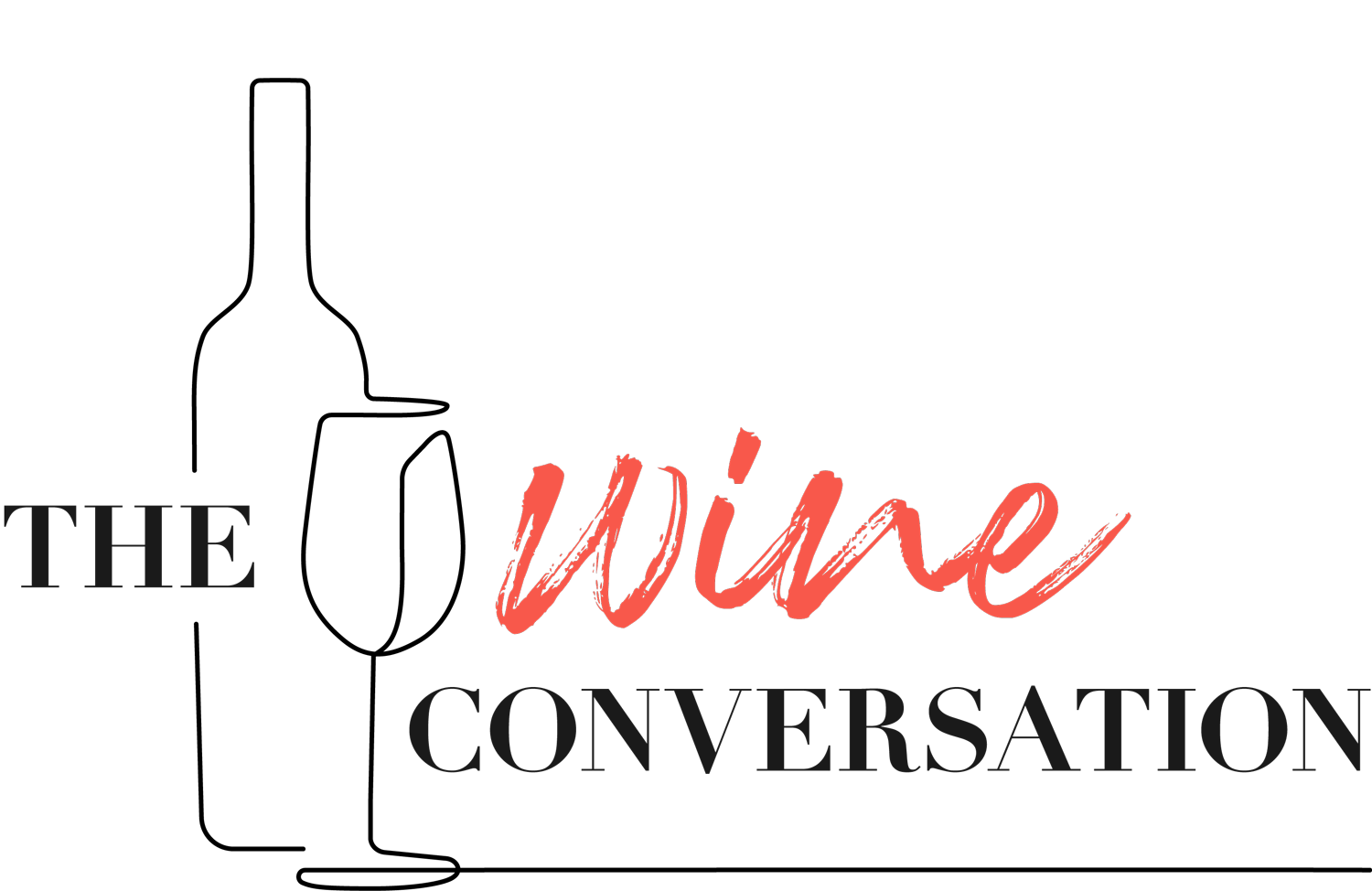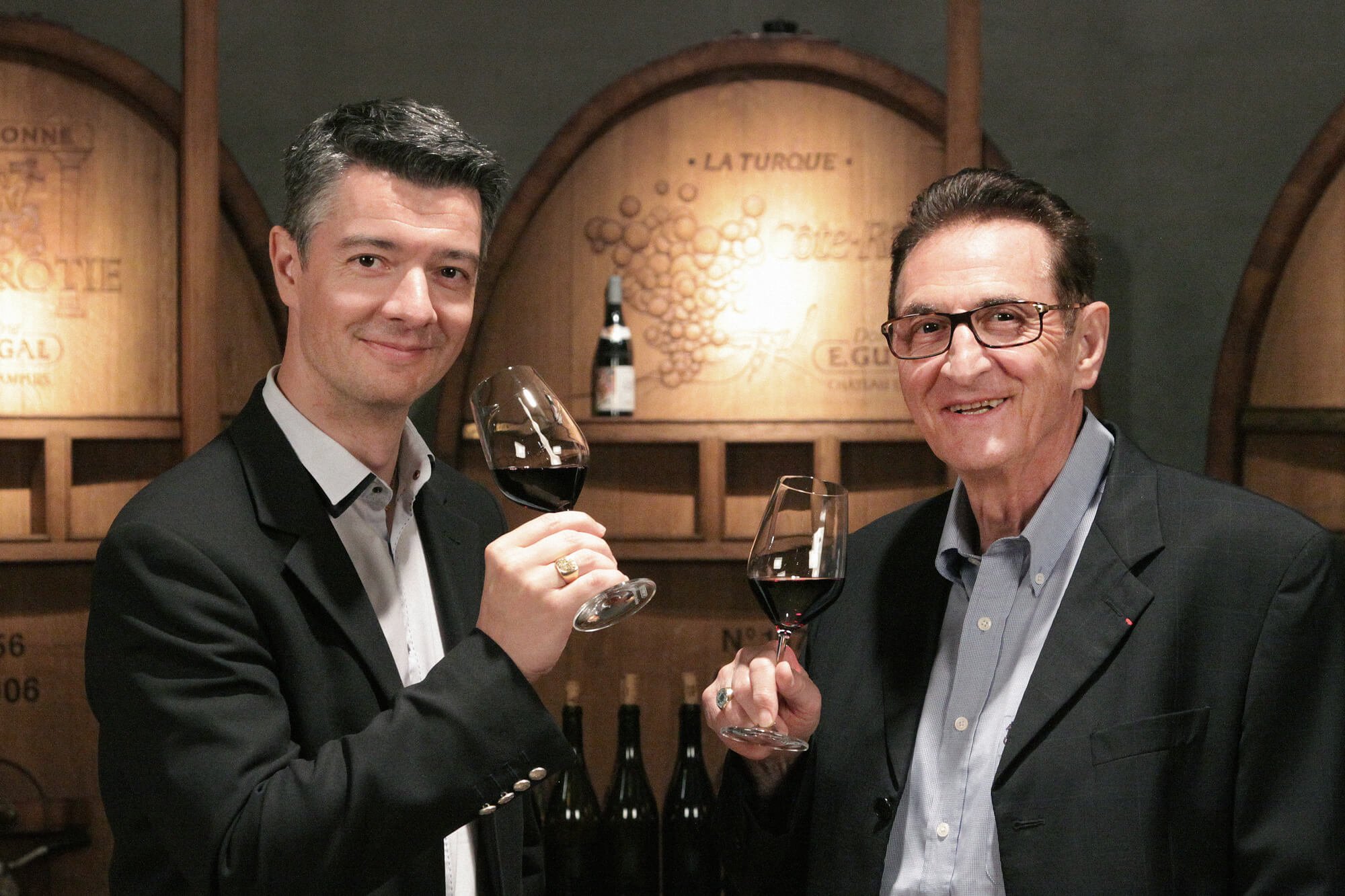▻ Philippe Guigal
Sarah Kemp in conversation with Philippe Guigal
Episode Summary:-
Philippe Guigal is the third generation of the world-famous Guigal family, the Rhône Valley’s most illustrious name. He talks to Sarah Kemp about how his grandfather, Etienne Guigal, who never spent a single day at school, started the family company in 1946 in the village of Ampuis in the Côte Rôtie, and how his father Marcel took over at 17 years of age when his grandfather became blind. Marcel went on to build the company into one of the world’s most respected wine names, and the Guigals’ single-vineyard wines (known as the “La Las”) attracted the attention of the world’s connoisseurs as they became true icons of the Rhône.
Philippe, an only child, joined the business in 1997 at 22 years old. “I feel very fortunate to have known the winery at a much smaller scale than it is today,” he remarks, and relates how he grew up realizing the family dining room was also a tasting room for buyers and journalists. He spent his time with this grandfather in the vineyards and with his father in the cellar, and never had a single thought of doing anything but working with the family.
His father was keen that Philippe should enjoy the education he had been denied, and so encouraged him to study; he chose Lyon for organic and biochemistry courses, and then decided upon Dijon for his oenology classes. An International OIV MBA allowed him to travel, and in 10 months he travelled to 18 vineyards around the world. (One of his formative moments, he recalls, was working with a young Pierre Lurton at Château Cheval Blanc.)
Phillipe tells the story of the famous “La-Las,” La Turque, La Mouline and La Landonne, three legendary parcels that express the complexity and resulting elegance of the Côte Rôtie terroir. His grandfather arrived in Côte Rôtie at 14 years old and fell in love with the magical La Mouline vineyard, vowing that if he had the money, one day he would buy it, which he did in 1966. La Turque had been producing wine since 1935, but it was in 1985 that Marcel gave it a “re-birth” with a very ambitious label. La Landonne was planted in 1975, the year of Philippe’s birth, and he considers it his vineyard. A new “La La” Côte Rôtie is about to be launched: La Reynarde. The vines were planted in 2010, the year Philippe’s twin sons were born. It will be released in 2026.
““Working alongside my father, I always respected and listened to my Dad a lot. I feel lucky and fortunate to work every day with my Dad, who has celebrated his 64th vintage this year.” ”
In 2017, the family bought Château de Nalys in Châteteauneuf-du-Pape. Philippe explains that they had been negociants there since 1942, but couldn’t resist the opportunity to buy the property, as it had some of the finest terroir in the region. It is one of the highest estates in terms of altitude in Châteauneuf-du-Pape, with steep slopes facing north. Though he has an excellent team, Philippe goes there every week, as they immediately started turning the 75-hectare estate organic, and are now building a new cellar.
The question of climate change affects every producer, but is particularly acute in the region, due to the increase in temperature. Philippe explains why he is optimistic: “We probably have the future of viticulture and winemaking in the essence of Châteauneuf-du-Pape. It’s the most liberal appellation – 13 grapes to do whatever you want to produce a wine, white or red.” For many years, the focus was on Grenache, but Philippe believes the future is focusing on several secondary and tertiary grapes that were considered too acidic in the past. He believes it is a good way to balance a blend.
He is optimistic about the Northern Rhône too. In the past, there was a need to chaptalise at 11.5 percent potential alcohol, but today they are reaching 13-13.5 percent potential alcohol without needing to add sugar. “We were searching for sunshine and maturity for many, many years,” he notes. “We don’t search any more, we have it, the issue is the future…we have to be resilient.”
Family is extremely important to him. “Working alongside my father, I always respected and listened to my Dad a lot. I feel lucky and fortunate to work every day with my Dad, who has celebrated his 64th vintage this year.” His mother, Bernadette, is also an important part of the company, still working in the office. His twin sons, Etienne and Charles, are already showing great interest, Etienne in oenology and Charles in the business side.
Guigal’s wines are found in 147 countries, but the main market is France, where 50 percent is sold. The US has been a strong market since the 1960s, and the UK and Japan are solid markets too. China isn’t in the top ten, as Rhône wines are not fashionable there.
What does he find difficult? “We are the only country which cannot talk about wine on TV and radio,” he says. And where he is happiest? “Making wine and tasting wine with his father every day.”
Running Order:-
-
0.00 – 16.50
“I feel very fortunate to have known the winery at a much smaller scale than it is today.”
– Growing up in the family winery and first memories.
– His grandfather and father building the family company.
– Philippe studies oenology and travels to other wineries abroad.
– The “La Las” – how they differ. -
16.51 – 41.07
“We probably have the future of viticulture and winemaking in the essence of Châteauneuf-du-Pape.”
– Buying Château de Nalys in Châteauneuf-du-Pape.
– The changes being made at Château de Nalys.
– The future of the Rhône in the face of climate change.
– Working with his father and his son’s interest in being part of the future.
– Guigal’s markets in 147 countries.
– What Philippe finds difficult and where he is happiest.
RELATED POSTS
Keep up with our adventures in wine










Hannes Myburg talks to John Stimfig about running the iconic South African Meerlust estate, which is celebrating its 50th vintage.